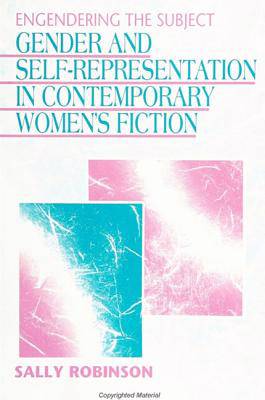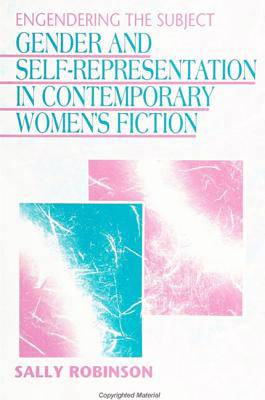
- Retrait gratuit dans votre magasin Club
- 7.000.000 titres dans notre catalogue
- Payer en toute sécurité
- Toujours un magasin près de chez vous
- Retrait gratuit dans votre magasin Club
- 7.000.0000 titres dans notre catalogue
- Payer en toute sécurité
- Toujours un magasin près de chez vous
Engendering the Subject
Gender and Self-Representation in Contemporary Women's Fiction
Sally RobinsonDescription
Robinson sets up a dialogue between feminist critical theory and contemporary women's fiction in order to argue for a new way of reading the specificity of women's writing. Through theoretically informed readings of novels by Doris Lessing, Angela Carter, and Gayl Jones, the author argues that female subjectivity is engendered in discourse through the woman writer's strategic engagement in representational systems that rely on a singular figure of Woman for coherence. Through this engagement, women's self-representation emerges as a process through which women take up multiple and contradictory positions in relation to different hegemonic discursive systems, and through which they engender themselves as subjects.
Finally, Engendering the Subject suggests how women's fiction can provide a model for a feminist practice of reading that would simultaneously work against the historical containment of Woman, and for the empowerment of women as subjects of cultural practices.
Spécifications
Parties prenantes
- Auteur(s) :
- Editeur:
Contenu
- Nombre de pages :
- 248
- Langue:
- Anglais
- Collection :
Caractéristiques
- EAN:
- 9780791407271
- Date de parution :
- 04-10-91
- Format:
- Livre relié
- Format numérique:
- Genaaid
- Poids :
- 535 g

Les avis
Nous publions uniquement les avis qui respectent les conditions requises. Consultez nos conditions pour les avis.






